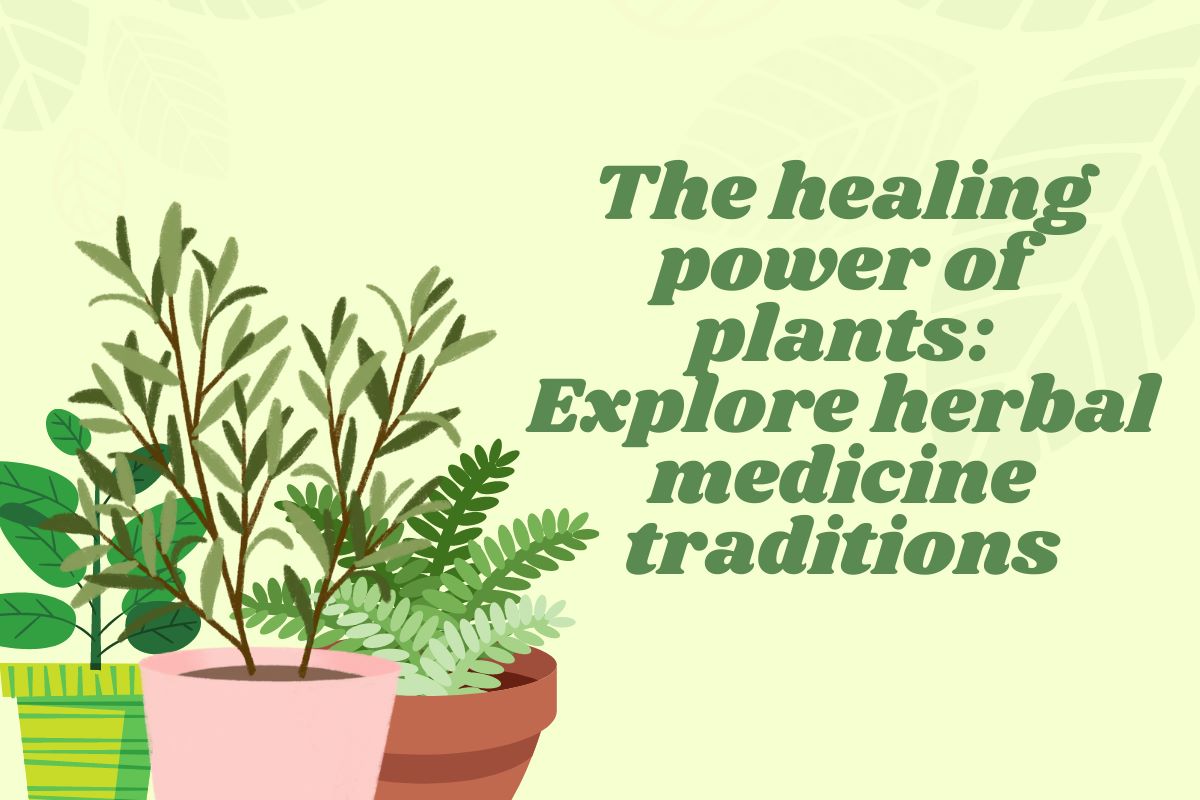The Healing Power of Plants: Exploring Herbal Medicine Traditions
By~ Scholar Planet
Created At: 05 Aug, 2023

Throughout human history, plants
have been an integral part of medicinal practices, offering profound healing
properties to various cultures around the world. Herbal medicine, also known as
herbalism or botanical medicine, is a time-honored tradition that utilizes the
therapeutic benefits of plants to treat ailments and promote well-being.
Ancient Origins of Herbal
Medicine
Herbal medicine has ancient
roots, dating back thousands of years to the earliest civilizations. Ancient
Egyptians, Mesopotamians, Chinese, Greeks, and Indigenous cultures worldwide
are among those who developed sophisticated herbal healing practices based on
their observations of nature and its effects on the human body. These early
civilizations passed down their herbal knowledge through oral traditions and
eventually through written texts, creating a legacy that still impacts herbal
medicine today.
Principles of Herbal Medicine
Herbal medicine is founded on
several core principles:
1. Holistic Approach: Herbalism
views the body as a dynamic system, aiming to treat the root cause of an
ailment rather than merely alleviating symptoms.
2. Individualization: Each
person's constitution and health conditions are unique, necessitating
personalized herbal treatments tailored to their specific needs.
3. Plant Synergy: Herbal remedies
often utilize combinations of plants to enhance their therapeutic effects. This
synergy can increase the overall efficacy of the treatment while reducing
potential side effects.
4. Prevention: Herbal medicine
places a strong emphasis on preventive care, promoting overall health and
well-being to reduce the likelihood of illness.
Common Herbal Medicine
Traditions
1. Traditional Chinese Medicine
(TCM): TCM is one of the oldest and most well-known herbal medicine traditions,
dating back over 2,500 years, which uses a combination of herbs, acupuncture,
and other techniques to restore the flow of vital energy within the body.
2. Ayurveda: Originating in
ancient India over 5,000 years ago, Ayurveda utilizes herbs, diet, meditation,
and yoga to balance the body's three doshas (vata, pitta, and kapha) and
promote health and longevity.
3. Indigenous Medicine:
Indigenous cultures worldwide possess a deep knowledge of their local flora and
use traditional plant remedies to address various health issues.
4. European Herbalism:
Traditional European herbalism has a long history and is influenced by Greek,
Roman, and medieval herbal knowledge.
Modern Validation of Herbal
Medicine
In recent years, there has been a
resurgence of interest in herbal medicine, driven by a desire for more natural
and sustainable healthcare options. Additionally, scientific research has begun
to validate the efficacy of many traditional herbal remedies, shedding light on
the mechanisms behind their healing properties.
Numerous plant-derived compounds
have been isolated and synthesized to create pharmaceutical drugs. For example,
aspirin originally came from the willow tree's bark, and the powerful
anti-malarial drug artemisinin was derived from sweet wormwood.
Herbal Medicine and
Integrative Healthcare
As the
world continues to seek more holistic and sustainable healthcare solutions,
herbal medicine's relevance and effectiveness continue to grow. Embracing the
wisdom of ancient traditions while integrating modern scientific research will
enable us to tap into the full potential of herbal medicine in promoting
health, vitality, and well-being for generations to come.
